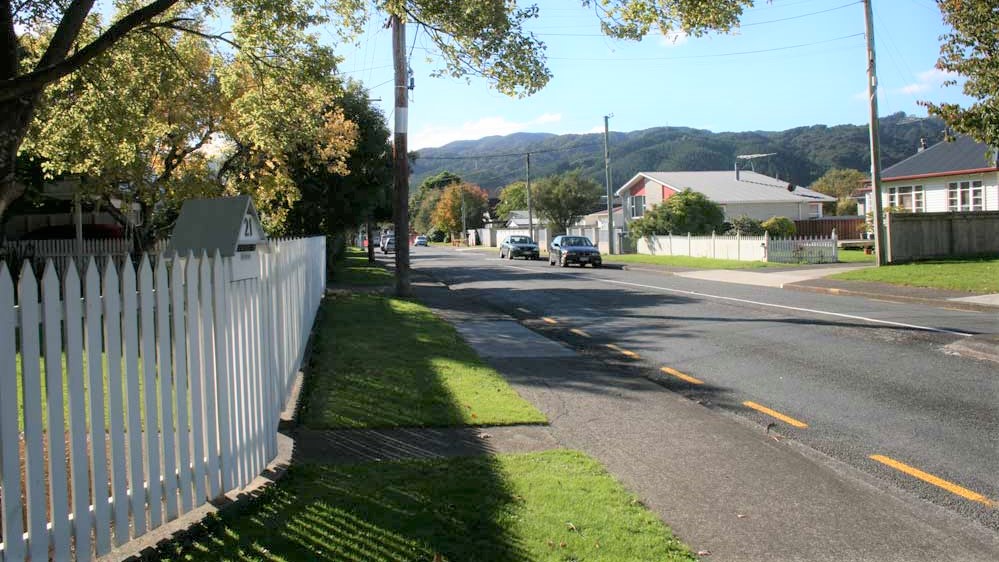Talking Real Estate
Gauging how much to actually say in an ad is very important.
Hi folks,
Many purchasers report that they feel that real estate ads often exaggerate the features of properties for sale.
Yet agents frequently report that when it’s their turn to sell, many proud home owners just can’t help wanting to ‘oversell’ their property by insisting that every feature of their home is highlighted in every ad, or by describing their home as having ‘four bedrooms’ rather than ‘three bedrooms and a study’. But what does a real estate ad really need to achieve?
No matter how superlative the advertising language is, the day of reckoning comes when purchasers arrive and match up their expectations with the reality. If the ad has done its job, purchasers will feel excited when they see the real thing. If an ad overstates the features of the property, purchasers often feel deflated or even worse - conned. A real estate ad has done its initial job if makes people feel desire and curiosity – sufficient to make them come and carry out an inspection. Disappointed purchasers are unlikely to make offers.
The property ad is not there to inform prospective purchasers about every aspect of the property. Too much information can actually make people decide not to inspect the property at all. To the inexperienced, this seems an unlikely situation. How could an ad that highlights the property’s desirability actually go against it in the long run?
Many home sellers don’t realise that potential purchasers may decide without seeing the house that it would not suit them. Some sellers think that purchasers who have already made up their minds against their property weren’t ever going to buy the property anyway, so it’s a good job they didn’t waste everyone’s time on an inspection.
This approach is a short-sighted one, however, as it overlooks the very real potential for the house to sell to someone who falls in love with it even though it doesn’t outwardly meet all the criteria on their wish list, or had a feature they had decided they didn’t want. Remember, most purchasers have to compromise on some features, and the home may meet their needs so well in some particular way that is special to them that they overlook the glaring lack of something else they thought they needed.

If you are a purchaser, a new listing is a cause for excitement. But that doesn't last forever.
Hi folks,
Selling in a slow market means understanding more than at any other time the importance of timing in getting the highest price. What does this mean?
To understand how sales work, vendors need to think like purchasers for a moment. If you are a purchaser, a new listing is a cause for excitement. After all, a purchaser who has been hunting for weeks or sometimes months for the right house to buy is eager for a new possibility – the right house at the right price. Eager purchasers converge hopefully on the first few Open for Inspections held for any new listing and the property is more likely to attract an offer in the early stages of marketing than at any other time. Yet this is the time a vendor is least likely to take an offer seriously.
Most agents, in fact, say that the hardest sale to make is the one that comes along in the first days of marketing, especially if the vendors are inexperienced. Many vendors just don’t realise that offers will and should come early – if the price is right. Sadly, they think that selling early in the marketing program is inevitably selling cheap. They simply haven’t understood that the serious purchasers are the ones who have seen everything on the market and turned it down – except the new listings.
The longer a property is on the market at a given price, the more the sense of competition fizzles and the more likely subsequent purchasers are to feel they have plenty of time to make up their minds. As a result, the best time to sell a property is often the very time that vendors hesitate and hold out for something better further down the track. The buyers who make their offers at this stage are the ones who have done their homework and are ready to buy. By the third or fourth week of marketing, all these ‘ready’ purchasers have seen the property and moved onto the new listings of that week, and almost all the enquiry comes from people who are new to the market and will take weeks or months to do their homework and be ready to act.

Hi folks, Having just had my best sales month pretty much ever I thought I would address the issues of overpricing property.
Hi folks,
Having just had my best sales month pretty much ever I thought I would address the issues of overpricing property. Sometimes it could be a real estate agent not doing their homework properly but sometimes vendors go about putting a value on their homes result in unrealistic expectations of the ultimate selling price.
For example, some people decide to base the figure they will sell for on the amount they need to buy their next home which means they don’t think of the fact that the market works on supply and demand and that unless their property type is in short supply (i.e not many of them exist) and in high demand (lots of buyers would like to buy this type of property) buyers will simply find a cheaper similar property round the corner or down the street.
The best way that both agents and vendors can determine their likely selling price is to do their homework on local sales of similar properties, with emphasis on the word ‘similar’ because some people just can’t help over valuing their properties by looking at their own asset with rose-coloured spectacles (is the fourth bedroom really a bedroom or would it be better classed as an office. If a property’s features are over stated in the advertising materials, disappointed purchasers often point the finger at the ad writers or real estate agents when in fact the ‘puff’ is sometimes vendor driven as unrealistic vendors push for prices that only someone with the bias of ownership could come up with. Conversely, purchasers visiting their umpteenth open for inspection rarely come equipped with rose-coloured spectacles
Bridging the expectation gap can be a confronting experience for vendors and many only realise too late that timing is one of the most crucial aspects of achieving the highest price. If they keep the rose-coloured spectacles on for too long and turn down offers they later realise were reasonable, it is likely that the property will become stale and purchasers will lose interest. This is the scenario that vendors should avoid at all costs by taking a reality check early in the piece rather than waiting months until it becomes so obvious that the price is wrong that only the bargain hunters are still interested
I can confirm that I’ve been guilty of over pricing on occasion, where I thought a property would be more popular than it was or I fell in love with it and thought the market would do the same (it didn’t) but I remember the real estate truism I heard many years ago, “price fixes everything”. It’s as true today as it was when I first heard it.

Hi folks, As the first week of spring is upon us and we enter the time of year when, traditionally more properties come to market I thought I would offer 7…
Hi folks,
As the first week of spring is upon us and we enter the time of year when, traditionally more properties come to market I thought I would offer 7 tips to consider prior to marketing, these aren’t gospel, just suggestions to enhance and possibly speed up the selling process. They are certainly cost effective, the important thing is to not throw thousands of dollars into your home that may not be required.
- Clear clutter, room by room
- Clean windows in and out
- Tidy the garden, front and rear, the front garden is generally the first impression a buyer gets
- Check the outside of the house for neglect, cobwebs and old toys, tools lying around etc aren’t appealing. Do parts of the exterior need a paint touch up?
- Get rid of any signs of neglect or poor maintenance in the house itself. Replace dead light bulbs, fix squeaky doors, broken blinds, dripping taps etc
- Unless it’s a child’s bedroom, or bedrooms really are too small, put in a double or queen bed or buyer will assume a bigger one won’t fit. (Wish I was kidding about this one)
- Dogs are a mans best friend but ask someone you trust to be honest with you, does the house smell? If so, shampoo carpets.
As you see, nothing shocking in there, they are easy things to do that could make a huge difference to your eventual selling price.

Hi folks, It's nearly daylight saving, yay, and with it comes Spring and I think it's fair to say that everybody loves Spring.
Hi folks,
It's nearly daylight saving, yay, and with it comes Spring and I think it's fair to say that everybody loves Spring. And the important thing for vendors is that buyers love it too. Days are longer and buyers have more energy to put the plans that have been at the back of the mind all winter into practice. Quite simply, buyers start to come out in larger numbers at this time of the year!
There are practical reasons why many people decide to make a new start in Spring and think of looking around for houses to buy. After all, the longer days have another benefit, extra daylight hours make it possible for many people to view a property for sale even at the end of the working day. From a vendor’s point of view, the garden too is starting to look good after the winter slowdown and is more likely than at any other time of the year to ensure that purchasers’ first impressions are good ones. Also, the house can be opened up to the fresh air, getting rid of any stale winter odours or to dry and dispel the odours of any quick paint or repair jobs needed to present the house at its best.
Many people who have been thinking of selling take advantage of the fact that their house and garden are looking good and that purchasers are out in larger numbers by deciding to put their houses on the market. The general optimism and feel-good energy that seems to be commonplace during Spring makes it one of the best times of the year to get the best sale outcomes.

Hi folks, Real estate agents have a strong motivation to quote high when assessing the value of a house for sale, they want the listing! (In fact, the more professional agents…
Hi folks,
Real estate agents have a strong motivation to quote high when assessing the value of a house for sale, they want the listing! (In fact, the more professional agents don’t do this because it wastes everyone’s time and often leads to a no-sale stalemate.) Sadly, the more unrealistic vendors are about their own property, the more likely it is that agents will feel the need to up the potential selling price. But there are things home sellers can do to encourage frank dealings and make sure agents don’t over-quote to get your house for sale.
Firstly, don’t put words into their mouth. Don’t tell agents you’re after a certain figure and that you won’t sell for less. Unless your house is seriously unusual, experienced and professional agents can assess the potential selling price very accurately to within a few per cent of what a property will sell for. It is important to encourage them to tell you what they think, not parrot back your own wishful thinking, wishful thinking that isn’t based on any real research into property values in the area. After all, agents base their appraisals on the experience of years of selling similar properties under various market conditions and they have statistical data bases at their fingertips. If you go with the agent who parrots back your wishful thinking, you may be in for months of buyer apathy.
Secondly, listen carefully to their lowest figure and don’t try to push them up, it stands to reason they will go as high as they can because they know they’re in competition with other agents for the listing. If you’ve done your homework and you are truly objective you will know in your heart that they are right. Resist the temptation to place a dollar value on the emotional attachment you have to that deciduous tree in full autumn glory (because you planted it 10 years ago and watched it grow and don’t want to leave it behind, especially since the family cat is also buried there) or those paved areas while at the same time overlooking the inconvenience of the steep driveway (youput up with it all these years).
Most home owners don’t realise the emotional weight they expect their home to translate into dollar terms, just as they think their own children are the most beautiful, the smartest, the best at sport. But they need to remember that if they appear emotional and unrealistic, agents will simply reflect back to them what they want to hear. It’s ironic that when the reality check of buyer indifference comes along, many home owners ultimately blame agents for overpricing their homes when they themselves created the competitive environment that caused the asking price to be set so high.
Hi folks, For the majority of the buying and selling market there isn’t a choice.
Hi folks,
For the majority of the buying and selling market there isn’t a choice. But as I have been asked the question by a potential vendor, I thought I would try to give a balanced answer as to whether it is better to buy or sell your house first. Selling the home you’re living in before buying another one is the financially safe option in most circumstances.
But could the state of the market affect your decision?
Selling first means you know exactly how much you are getting for your current property and, correspondingly how much you can spend on your new one. The finance side is more straightforward because all figures are known and stress is reduced. But unless you arrange a delayed settlement, or sell your current home in the period between exchange and settlement, you may need interim accommodation. While this may not be so expensive, other expenses take their toll -storing excess furniture and paying two sets of removal costs for example. And what if you just can’t find the right house? These then become long term and potentially damaging holding costs.
Buying first allows for a straightforward move from one home to the other, but it may be stressful and financially demanding paying a double mortgage if your home takes longer to sell than expected.
You may then feel that the best solution is to take less for your current home in order to save the costs of bridging finance.
There is no hard and fast rule that covers buying or selling first as each person’s individual financial and accommodation options vary; however, it is almost always useful to take into account the state of the market before making a decision. In a sellers’ market where prices are rising and there are more buyers than properties for sale, it might be sensible to buy first, as your property is likely to sell fast. Conversely, in a buyers’ market where there are lots of properties for sale, it may be smart to sell first, especially as this is just the kind of market where you may get less than anticipated for you current home.
It’s surprising how many people somehow manage the seemingly impossible – a simultaneous settlement. Those that are successful have usually done their market research thoroughly and have realistic expectations about what their current home is likely to sell for.

Hi folks, Many experts say that the best selling price is often achieved in the first few weeks of marketing, when the listing is fresh and exciting and all the unsatisfied…
Hi folks,
Many experts say that the best selling price is often achieved in the first few weeks of marketing, when the listing is fresh and exciting and all the unsatisfied purchasers converge eagerly on a new possibility. Often vendors think they have little impact on the sales outcome but their input can be crucial and the quality of the relationship between agent and client can make all the difference.
The first two weeks of marketing can set the scene for a positive relationship and sale or its opposite and vendors can contribute to keeping an open line of communication with their agent from the outset. If the relationship breaks down, the sale outcome is usually affected and at this stage vendors often blame agents for a host of small things that could have been remedied early in the relationship. Some people find it hard to speak frankly, especially if issues that arise seem at the time too small to mention (for example, the signboard is in the wrong spot or is crooked, the agent keeps bringing purchasers in through the side balcony door instead of the front door, or perhaps s/he turns up with a purchaser with only sixty minutes’ notice instead of several hours.) These issues may not seem worth worrying about when they arise, but often add up to a general dissatisfaction with the quality of the agent’s service, especially if the market is quiet and there aren’t many inspections.
Many people prefer to grumble amongst themselves rather than quibble over small things, but professional agents will want to get it right and will appreciate vendor input, knowing that a good rapport will make the negotiation process more successful too. They understand that although they sell houses every day, most of their clients will do it only a few times in a lifetime and that they find it very stressful. Many people find it hard to be critical until something happens that is serious enough to make them lose their temper – and by then the relationship is hard to salvage. While it’s up to the agent to check whether the vendor is happy with the way the inspections are progressing, vendors can help by speaking frankly from the outset, giving the agent a chance to get it right in the long term interests of a successful sale.
Hi folks, Have you ever wondered why some houses sell for a higher price than a similar property in the same street or subdivision? Here are a few thoughts that…
Hi folks,
Have you ever wondered why some houses sell for a higher price than a similar property in the same street or subdivision? Here are a few thoughts that may explain why.
There are several factors that contribute to a home’s appeal that aren’t always immediately quantifiable – orientation, design that maximises natural light, pleasing proportions and other factors that contribute to market appeal. For example, there are two identical homes, but the living area of one home faces north and the other south? Given that more buyers write ‘north-facing’ on their wish list, the north-facing property is surely more saleable (therefore worth more) than the south-facing one. All the same, the owners of the south-facing one probably think that their home has the same features and of course value as the one that buyers prefer.
Elusive appeal is also likely to be a function of the original design concept of the house. After all, it is not uncommon for homeowners to “save” money at the planning stage of building or extensions. They achieve the measurable features they were after but not the elusive ‘wow’ factor. Good design, especially the skilful use of natural light, window placement and correct orientation on the land adds something you can recognise but can’t always define. Many people add on, or make minor changes as the need arises without taking a holistic view of their property. They think in terms of immediate solutions to particular problems (need large fourth bedroom with ensuite to become master bedroom) rather than conceptualising the impact of the house as a whole (small living area and kitchen means scale of property is out of balance).
Home owners who want to save money should be aware that skimping on planning and design could mean that the house never reaches its full potential in terms of re-sale value, no matter how impressive its features.
The kind of appeal that makes buyers go ‘wow’ can also come simply from regular maintenance and attention to detail in the presentation of the property. A house that looks loved and cared for is shown to its best advantage, yet it may be identical in most other respects to a less popular property in the neighbourhood.

Hi folks, So you are getting ready to put your home on the market but how do you choose which agent to use? Do you think we are all the same? If…
Hi folks,
So you are getting ready to put your home on the market but how do you choose which agent to use? Do you think we are all the same?
If you do then there’s not a lot I can do for you and you should go with the cheapest and stop reading this now.
If however you are more insightful, like the majority of people out there, then you want the agent who is going to sell your single greatest asset to have experience, expertise, professionalism and a fantastic track record. But how can you tell just from looking at them? Simply put you can’t, so I’m going to give you some pertinent questions that will help you ‘interview’ the agents who come through your door.
- How long have you been selling real estate?
- How many properties have you sold in the last 12 months?
- From what advertising sources do the majority of local home buyers come?
- Approximately how many purchasers do you have listed on your books who might be interested in inspecting my property for sale?
- Answer these:
- Do you recommend advertising on the internet?
- If yes, what sites do you use?
- Do you use virtual tours?
- Are Open Homes a good idea?
- What is your agency’s attitude to auction?
- Over the last 6 months, what has been the percentage variation in a local property from asking price to sold price?
- What is your agency’s average length of time from the first marketing activity to offer and acceptance?
- What is the length of your agency period?
- Do you provide a Service Guarantee? If yes, can I see it?
- If I am not happy with your service what remedies do I have?
- What is the average cost of a marketing programme?
- Why should I appoint you as my selling agent?
